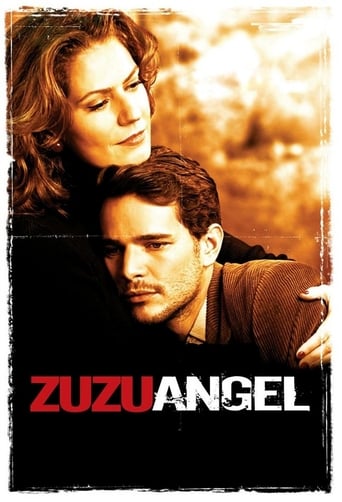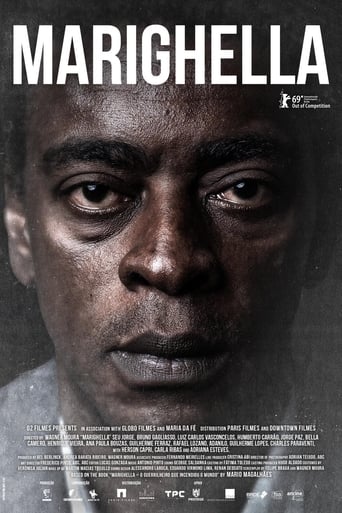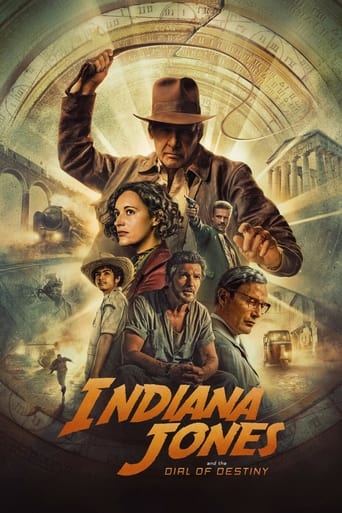Best movies like Hércules 56
A unique, carefully handpicked, selection of the best movies like Hércules 56 Starring José Dirceu, Franklin Martins, and more. If you liked Hércules 56 then you may also like: 5 Fingers, Zuzu Angel, A Long Journey, Nise: The Heart of Madness, Rio, 100 Degrees F. and many more popular movies featured on this list. You can further filter the list even more or get a random selection from the list of similar movies, to make your selection even easier.
Documentary featuring contemporary interviews with 5 of the revolutionary activists who kidnapped US ambassador Charles Embrick in August 1969 in Rio de Janeiro and some of the political prisoners who were freed from prison in exchange of the ambassador's liberty and flown out of Brazil to Mexico in an army cargo airplane "Hércules 56".
You may filter the list of movies on this page for a more refined, personalized selection of movies.
Still not sure what to watch click the recommend buttun below to get a movie recommendation selected from all the movies on this list
Zuzu Angel
Covering the last years of the famous Brazilian fashion designer in her doomed quest for justice, Zuzu Angel follows the case of her activist son Stuart's arrest, torture, murder, and subsequent corpse disposal by the military forces in early 1970s Rio de Janeiro, during the darkest era of Brazilian military regime and media censorship.
A Long Journey
"A Long Journey" tells the story of three siblings who reach adolescence in the late 1960's. The documentary's storyline follows the youngest brother's travels around the world. Worried that he would enter the struggle for freedom against the Brazilian dictatorship, his family sent Heitor to London. There however, he dives head on into the "Swinging London" and, just like the European and American youth of the time period, he experiments with drugs and the mystic allure of India. In the nine years he has traveled around the world, from 1969 to 1978, he has regularly written to his family. The documentary features interviews with Heitor today, his letters and off-screen comments of Heitor's sister, Lúcia Murat, the director of the movie.
Nise: The Heart of Madness
After being released from prison, Dr. Nise da Silveira is back at work in a psychiatric hospital on the outskirts of Rio de Janeiro where she refuses to employ the new and violent electroshock in the treatment of schizophrenics. Ridiculed by doctors, she is forced to take on the abandoned Sector for Occupational Therapy, where she would start a revolution through paintings, animals and love.
Rio, 100 Degrees F.
On a scorching summer day in Rio de Janeiro, five impoverished black boys venture out of their favela to peddle peanuts throughout the bustling city. As they navigate the various districts of Rio, they bear witness to a series of unfortunate events and encounters, unfolding a vivid tapestry of urban life in Rio de Janeiro during that period. These true misadventures shed light on the gritty reality of the city, unveiling its vibrant urban tapestry.
Rio 2096: A Story of Love and Fury
“Rio 2096 – A Story of Love and Fury” is an animated film that portrays the love between an immortal hero and Janaína, the woman he has been in love with for 600 years. As a backdrop to the romance, the feature highlights four phases of Brazilian history: colonization, slavery, the Military Regime and the future, in 2096, when there will be a war for water.
Baptism of Blood
In São Paulo, in the late 1960s, the convent of the Dominican friars became a trench of resistance to the military dictatorship that governs Brazil. Moved by Christian ideals, frets Betto, Oswaldo, Fernando, Ivo and Tito came to support the guerrilla group Ação Libertadora Nacional, commanded by Carlos Marighella.
Four Days in September
Fernando, a journalist, and his friend César join terrorist group MR8 in order to fight Brazilian dictatorial regime during the late sixties. Cesare, however, is wounded and captured during a bank hold up. Fernando then decides to kidnap the American ambassador in Brazil and ask for the release of fifteen political prisoners in exchange for his life.
Prime Time Soap
In Brazil, in 1978, under the dictatorship, the country lives the euphoria of disco fever and the fantasy life of Dancin' Days, a prime time soap. After a fatal incident, Amanda, a high-class prostitute addicted to TV, and her maid Dora, are forced to flee São Paulo to Rio. While Amanda dreams of visiting the Dancin' Days disco, Dora prepares to confront her secret past. Their destinies will eventually intersect with those of João Paulo, a diplomat who feels like a foreigner in his own country, the revolutionary Vicente and his brother Pedro, and the teenager Caio, raised by his grandparents and relying on the support of his friend Mônica as he struggles to be accepted as a gay man. Both youngsters are crazy about disco fever and fascinated by the soap Dancin' Days.
Waste Land
An uplifting feature documentary highlighting the transformative power of art and the beauty of the human spirit. Top-selling contemporary artist Vik Muniz takes us on an emotional journey from Jardim Gramacho, the world's largest landfill on the outskirts of Rio de Janeiro, to the heights of international art stardom. Vik collaborates with the brilliant catadores, pickers of recyclable materials, true Shakespearean characters who live and work in the garbage quoting Machiavelli and showing us how to recycle ourselves.
Olga
Based upon the true story of Olga Benário, the German-born wife of Brazilian communist leader Luís Carlos Prestes. During the dictatorship of Getúlio Vargas (1930-1945) she was arrested and sent to Nazi Germany, where she was put to death in a concentration camp. After World War II began, Vargas decided to uphold the Allies.
Marighella
Afro-Brazilian poet and politician, the legendary Carlos Marighella. Driven to fight against the erosion of civil and human rights following the CIA-backed military coup of 1964 and the brutal, racist right-wing dictatorship that followed, the revolutionary leaves behind his wife and son to take up arms, becoming a notorious enemy to the power structure.
400 Against 1: A History of Organized Crime
The story of William da Silva Lima, the last survivor of the group that founded the Comando Vermelho at the end of the 1970s. It shows him living together with the political prisoners incurred under the same National Security Law and his leadership in the Ilha Grande Prison creating a type of unheard of conduct and solidarity in the Brazilian prisons. The film goes on to tell of the group's actions on the streets of Rio de Janeiro during the beginning of the 80s when they irritated the police with their daring robberies, as well as portraying the surprising love story between William and Tereza. The narrative weaves its way between the intimate conflict and the spectacular assaults and escapes.
My Home Is Copacabana
Homeless children in the slums of Rio are driven out of their temporary shelters by ruthless gangsters in this somber drama. The kids survive by shining shoes, stealing, and cutting the strings of the kites to sell them later to others. Tired of life on the streets, one boy turns himself over to the police in hopes he will be sent to reform school in a last desperate attempt to survive. This feature from acclaimed Swedish director Arne Sucksdorff appeared at the 1965 Cannes Film Festival.
Getulio
The movie depicts the political crisis that led to the suicide of president Getúlio Vargas, in the 19 days that preceded August 24, 1954. The crisis began with the attempted assassination of journalist and politician Carlos Lacerda in August 5, 1954, at rua Toneleros, Rio de Janeiro, in which Major Vaz was assassinated instead. Investigations pointed to Gregório Fortunato, chief of Vargas' personal guard, as the orderer of the frustrated assassination. This incident was one of the most importants in the history of Brazil.
The Secret Diary of an Exchange Student
Two best friends embark on a life-changing adventure abroad as exchange students.
Copacabana Fools Me
Marquinhos is in his early 20s and lives in Copacabana with his petits bourgeois parents and older brother. He doesn't have a job, he doesn't go to school, he just lives on the spur of the moment, watches TV, plays soccer on the beach by day and goes out with his mates by night. He meets Irene, a 40 year-old woman and they have a love affair that is going to change his life - for a while.
Os Paqueras
Two ladykillers living in Rio de Janeiro know no limits when courting a beautiful woman. A problem arises when one of them starts coming on to a girl, not knowing she's his buddy's daughter.
Beyond Citizen Kane
Beyond Citizen Kane (1993) is a British documentary film directed by Simon Hartog, produced by John Ellis, and broadcast on Channel 4. It details the dominant position of the Rede Globo media group in the Brazilian society, discussing the group's influence, power, and political connections.[2] Globo's president and founder Roberto Marinho came in for particular criticism, being compared with fictional newspaper tycoon Charles Foster Kane, created by Orson Welles for the 1941 film Citizen Kane. According to the documentary, Marinho's media group engages in the same Kane wholesale manipulation of news to influence the public opinion.
AI-5 - O Dia que Não Existiu
Documentary about a political episode during the Brazilian military dictatorship, which resulted in the issue of the Institutional Act #5 (AI-5), abolishing freedom of opinion in Brazil, and marking the transition to the toughest period of violation of human rights in the country. The episode was the Congress Assembly on December 12th, 1968, in which its members denied permission to punish congressman Márcio Moreira Alves, as was the Government's wish.
Young Polacas
The story of the famous "Polacas", Jewish women deceived into prostitution in Rio de Janeiro in the early 1900's. Ricardo interviews Mrs. Mira, who struggles to bring back memories from her mother's past as a Polaca.
How Nice to See You Alive
Four years after a military coup overthrew the Brazilian government in 1964, all civil rights were suspended and torture became a systematic practice. Using a mix of fiction and documentary this extraordinary film is a searing record of personal memory, political repression and the will to survive. Interviews with eight women who were political prisoners during the military dictatorship are framed by the fantasies and imaginings of an anonymous character, portrayed by actress Irene Ravache.
Hoje
Former political activist receives compensation from the Brazilian government for the disappearance of her husband, victim of the repression triggered by the Brazilian military dictatorship. With the money, she can buy her an apartment and free herself from this dreadful condition she lived for decades. At the moment of moving to the new home, however, a visit arises that forces her to review her entire life.
Apolônio Brasil, Campeão da Alegria
Apolônio Brasil was a pianist at a famous nightclub in Rio de Janeiro, from the 1950s until his untimely death. Quite a character, Apolônio was loved by women and idolized by his audience and friends. His contagious joy attracts the attention of American scientist Dr. Boris Lewitsky, who comes to Brazil in order to interview Apolônio's close friends and make them a most unusual offer concerning the remains of the late musician.
Rio Fantasia
Quartet from Northeast Brazil arrive in Rio de Janeiro, to try their luck in the big city.
Pelé
Against the backdrop of a turbulent era in Brazil, this documentary captures Pelé's extraordinary path from breakthrough talent to national hero. Mixing rare archival footage and exclusive interviews, this documentary celebrates the legendary Brazilian footballer who personified football as art.
The Edge of Democracy
A cautionary tale for these times of democracy in crisis—the personal and political fuse to explore one of the most dramatic periods in Brazilian history. With unprecedented access to Presidents Dilma Rousseff and Lula da Silva, we witness their rise and fall and the tragically polarized nation that remains.








































5 Fingers
During WWII, the valet to the British Ambassador to Ankara sells British secrets to the Germans while trying to romance a refugee Polish countess.